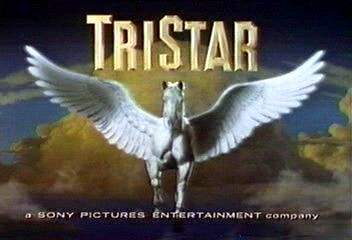Sony Picture s Entertainment (SPE) has warned media owners they could face legal action for substantial damages if they report the contents of stolen documents that were leaked online following a cyber-attack on Sony in November 2014.
s Entertainment (SPE) has warned media owners they could face legal action for substantial damages if they report the contents of stolen documents that were leaked online following a cyber-attack on Sony in November 2014.
In a blunt letter written by a top US law firm, SPE has requested media organisations including The New York Times, Wall Street Journal, Bloomberg News and The Hollywood Reporter to destroy “stolen information” which includes documents, personal data and emails that’s sensitive data that is now presumed to be in the public domain.
In a thinly veiled threat, the letter warned: “If you don’t comply with this request and the stolen information is used or disseminated by you in any manner, SPE will have no choice but to hold you responsible for any damage or loss arising from such use or dissemination by you.
The signatory to the letter is David Boies, a lawyer who has in the past represented Hank Greenberg, former AIG chief executive.
Sony HQ in Tokyo declined to comment on the letter, fearing that this would become the news story in its own right and over-shadow its desperate crisis management attempts that continue to look incredibly amateur for a company of its size and stature.
This latest move represents a clumsy attempt to contain the growing damage Sony has suffered after weeks of embarrassing leaks that includes details of executives’ salaries, unpublished film scripts, sensitive contracts and candid exchanges about actors between Amy Pascal, Sony’s co-chair, and Scott Rudin, the Hollywood producer.
And as Sony is in the content business, it doesn’t get any more interesting than that, although it would rather keep all of this stuff behind closed doors. Employees’ personal data has also been leaked, including social security numbers and health records.
The reputation of the consumer tech giant lies in tatters as its tried to rebuild its credibility and reputation but by all accounts the company is still in panic mode.
A computer hacking group calling itself “Guardians of Peace” has demanded that Sony Pictures stop the release of The Interview, a satirical comedy about a farcical attempt to assassinate Kim Jong Un, the North Korean dictator.
The group has threatened Sony Pictures with more releases of private information if it doesn’t comply with the demand. North Korea has denied any involvement in the attack by hackers.
The lawyer’s ‘letter before action’ was sent in the wake of unsuccessful private attempts to dissuade media organisations from publishing the leaked information, which has already been widely posted on the internet and therefore already in the public domain.
The latest calamity to hit the consumer electronic and movie giant demonstrates the difficulties that companies face in tackling hackers who can skilfully engage media outlets to maximise the reputation damage they cause.
Such brand attacks are now becoming much more commonplace and it’s one reason why the European Parliament and Council of Ministers want to see a much tougher regime in place to protect data under the forthcoming EU General Data Protection Regulation that could potentially levy fines on Sony if it was shown to have fallen short of a high standard of data protection and security than it does at present.
Aaron Sorkin, the award winning US screenwriter and producer of The West Wing, put the onus on US media groups on this issue in a recent op-ed in The New York Times. Sorkin argues that there’s nothing in the leaked data that rises to the level of public interest that would justify exposing the stolen documents.
“Do the emails contain any information about Sony breaking the law? No. Misleading the public? No. Acting in direct harm to customers, the way the tobacco companies or Enron did? No. Is there even one sentence in one private email that was stolen that even hints at wrongdoing of any kind? Anything that can help, inform or protect anyone?” he wrote.
“Every news outlet that did the bidding of the Guardians of Peace is morally treasonous and spectacularly dishonorable,” said Sorkin who also created the hit-series The Newsroom.
Some investors in Sony, the studio’s parent company, have said that its group HQ needs to be more involved in tackling a crisis that is damaging the brand’s reputation and one which it will take many years to repair. Sony officials in Tokyo said they were regularly briefed on the matter but the hacking had been mainly handled by the US subsidiary.














Recent Comments